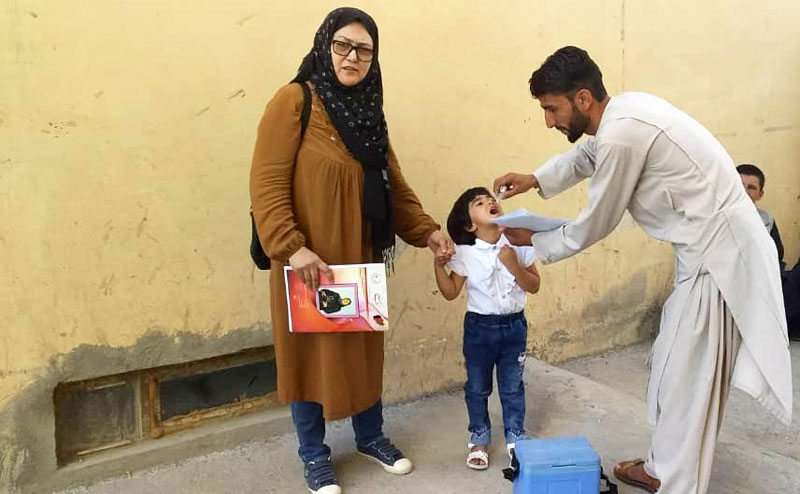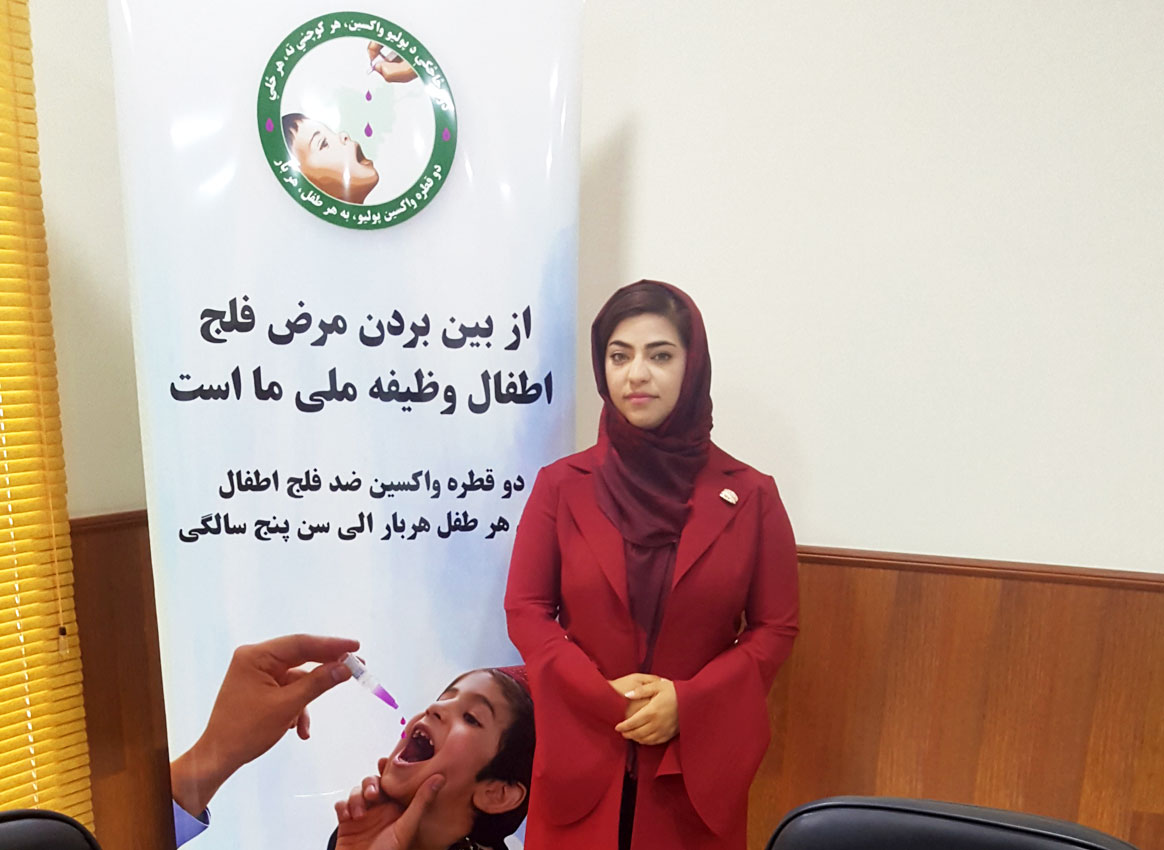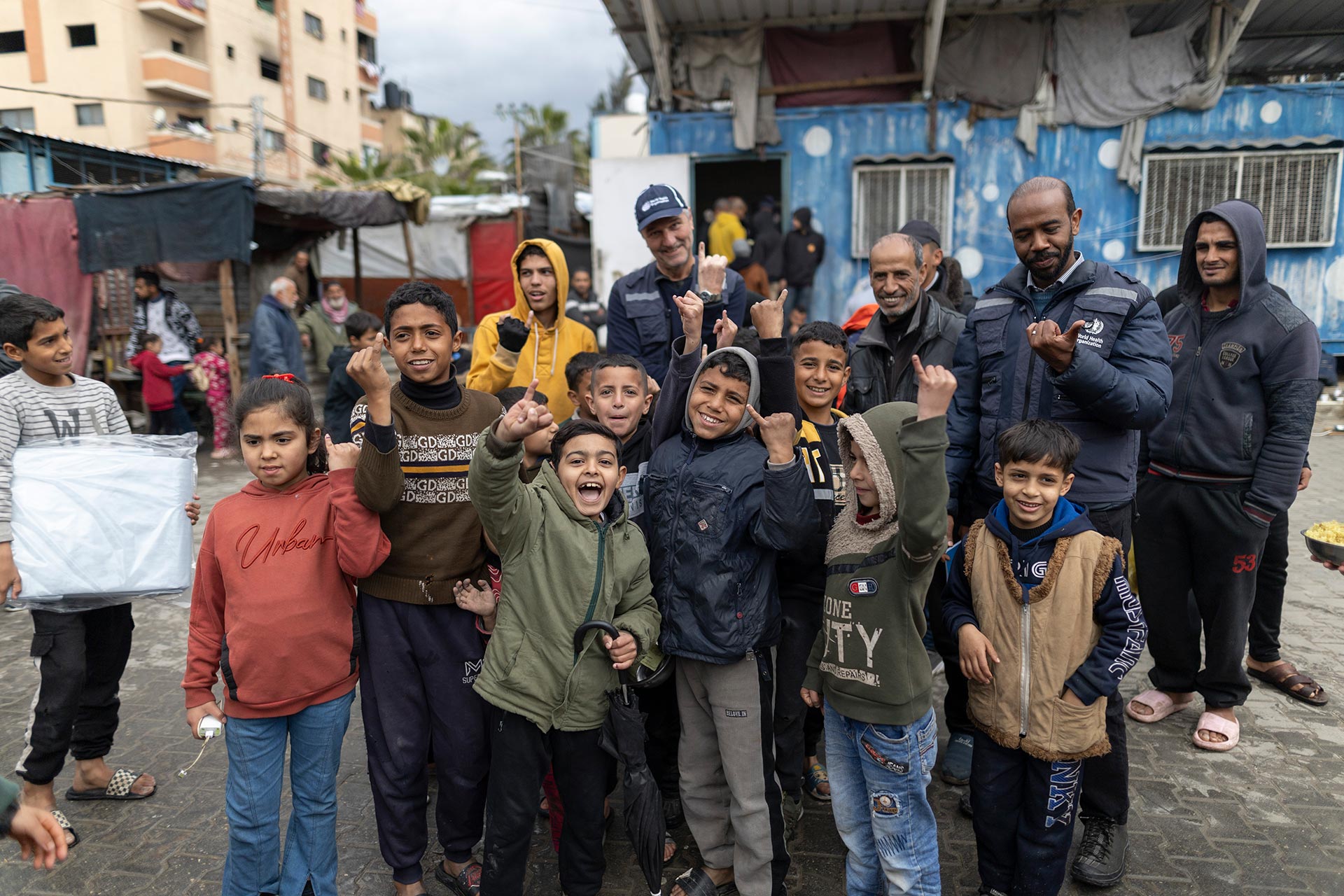
At the undergird of the polio programme in Afghanistan are women — polio officers, health workers, frontline workers, mothers, sisters, daughters, and grandmothers— some are anonymous, and some are on the frontlines. But what he polio programme is driven by women on a mission. The milestones achieved in the global fight against polio eradication are in large part due to the female work force. They are able to step beyond the threshold of countless homes, and effectively, cross socio-cultural barriers
From field visits, to encouraging parents, vaccinating children to sitting in the Expert Review Committee, Afghan women put shoulder to the wheel in efforts to eradicate polio in Afghanistan.
Read their stories in their own words:
Dr Fariba — Provincial Polio Officer, Kabul
“I’ve been doing this job for over 13 years now. I’m married with two kids. I used to be working in Mazar in different local clinics, and gradually got promoted to where I am today,” said Dr. Fariba.
Dr. Fariba is a provincial polio officer in Kabul. Over the years, Dr fariba has criss-crossed across the neigbhourhoods of Kabul in scorching summers and unforgiving winters with a single-minded cause: to reach every last child with polio vaccines. Thanks to her profession, Dr Fariba has picked up exceptional navigation skills. Call it occupational hazard or just a woman with a purpose, Dr Fariba knows the back alleys and short cuts around all of Kabul.
“I’m on the selection panel to find good polio workers, and I try to get qualified females to join, because it’s really important to have more women in this programme. Parents usually talk to women more openly and respectfully, which makes our work easier. As a woman and a mother, I get easy access to speak to families, and sometimes, it helps to convince them to vaccinate their children…” Dr. Fariba added.
Dr Karima — Provincial Polio Officer, Kabul
“I started to work in polio 14 years ago … we really hope to eradicate polio from our country,” said Dr. Karima, a provincial polio officer in central Kabul.
Dr. Karima manages a bustling part in central Kabul. Dr Karima works hard and wants to make a difference in the lives of the Afghan children and would like to see polio eradicated in Afghanistan— hopefully, during her lifetime.
Her professional aspirations for a polio-free Afghanistan is also driven by her other full-time job: that of a mother. “I have a 17-year-old boy and a 13-year-old girl, my daughter wants to become a doctor just like me, so I have to set a good example for her…” Dr. Karima explained.

Elaha Barakzai — Cluster Supervisor, Farah Province
Even though she’s only 20-years old, Elaha Barakzai, cuts an impressive figure. She is a cluster supervisor in Farah Province and has been working for polio eradication for the past two years, right after high school. Within the programme she supervises six teams of vaccinators — about 12 people and all of them older men. “I have never had issues with my teams. They respectfully follow my instructions and do their work. I help them get access to families who might refuse to open their doors to male vaccinators. We work very smoothly as one big team”, said Elaha, contrary to popular belief.
Elaha is currently doing a Bachelor of Art degree in Pashto Language and Literature, however, after having a job in polio eradication programme, she is planning to start studies in public health. “I discovered my interest after I worked for polio programme, I am a health person and I will work in health and serve my people,” said Elaha.
Hanita Haghigi — polio data
Hanita Haghigi is working on polio data in western region in the country. She is also helping the western team with other technology issues. “I am proud that I am helping the polio eradication initiative in my country. Every bit of support counts, I would like to see polio eradicated in my country and I believe all Afghans should support us, especially the Afghan women.” said Hanita Haghigi.



